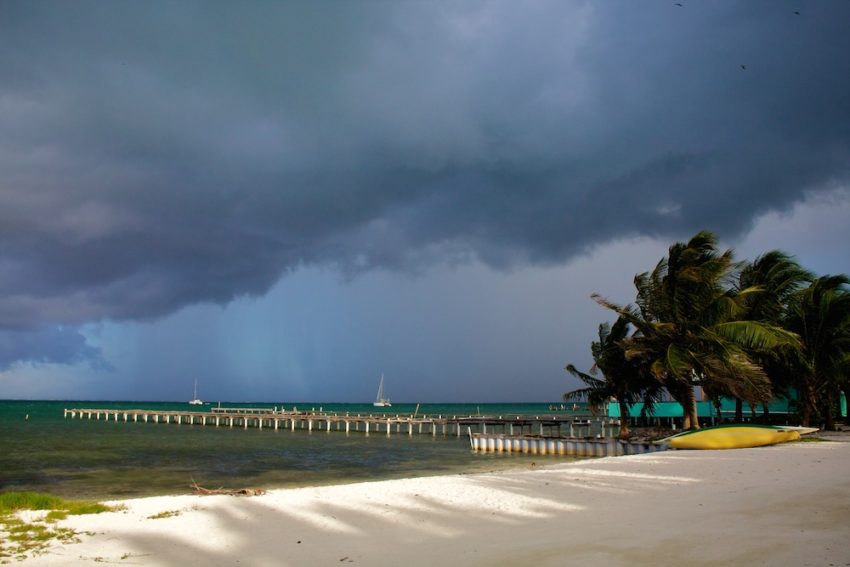Questioning Elitism in the Wake of 'the Paradise Papers'
While mainstream media zeroes in on the GOP tax plan, the week’s most important economic revelation remains under-covered: information gleaned from “the Paradise Papers,” a new trove of leaked documents unveiling how global elites stash their riches in offshore accounts to dodge taxes.
Journalists continue to comb through the 13.4 million documents, and new revelations are coming to light daily. The list of those shown to have hidden riches offshore in some capacity includes:
- Britain’s Queen Elizabeth and her son, Prince Charles
- Tech giants including Apple, Amazon and Nike
- Celebrities from Harvey Weinstein to Madonna
- New England Patriots owner Robert Kraft
- Business giants including Microsoft co-founder Paul Allen and eBay founder Pierre Omidyar
- U.S. Commerce Secretary Wilbur L. Ross Jr., Trump’s chief economic adviser Gary Cohn and Secretary of State Rex Tillerson
- Republican superdonors including Charles and David Koch
- Democratic superdonors including James Simons
The list continues to grow, and as it does, politicians and journalists are pointing out the hypocrisy inherent in numerous cases. For example, billionaire Kraft has touted his support of the working class and strived to seem empathetic toward average Americans. And yet the Paradise Papers reveal how he avoided or reduced his taxes for decades through an offshore company. Or take Bono, the legendary U2 frontman, who has repeatedly advocated against poverty and whose name also appears in the leaked documents.
The Paradise Papers highlight the broad, deep-rooted problem of economic inequality around the globe. Economist Thomas Frank writes:
Think about it like this. For decades Americans have been erupting in anger at what they can see happening to their beloved middle-class world. We think we know what the culprit is; we can see it vaguely through a darkened glass. It’s “elitism”. It’s a “rigged system”. It’s people who think they’re better than us. And for decades we have lashed out. At the immigrant next door. At Jews. At Muslims. At school teachers. At public workers who are still paid a decent wage. Our fury, unrelenting, grows and grows.We revolt, but it turns out we have chosen the wrong political leader. We revolt again; this time, the leader is even worse.This week we are coming face to face with a big part of the right answer: it’s that the celebrities and business leaders we have raised up above ourselves would like to have nothing to do with us.
The resulting economic anger has been a long-overlooked factor in many of our nation’s problems.
Take Sunday’s massacre in Sutherland Springs, Texas. Economics professor Richard D. Wolff and mental health counselor Dr. Harriet Fraad argue that a key aspect of many mass shooters is their belief in an “American exceptionalism” that is ultimately undermined by capitalism. As a result, “[m]any men look to recoup their lost powers” and “disempowered people—particularly white men—are tempted to search for and find scapegoats to blame for their disenfranchisement and loneliness.”
Wolff and Fraad continue:
The liberal U.S. media often blame angry, disempowered white men and their spokespersons for being politically incorrect and boorish. Those media rarely if ever analyze the role of capitalism in denying white men their family wages and the American dream. Capitalism—the profit system—is thereby rendered innocent while angry white workers are deplorably prejudiced. Men versus women, white against non-white, immigrant against native: a divided mass of people (mostly employees) get caught up in conflicts while capitalists accumulate wealth and capitalism evades criticism.Americans do not have a mass party or organized voice to help people understand that capitalist profiteering motivated those who took their family wages and jobs. Many are thus left with hatred for other people. That seldom works to overcome or end loneliness.
Similar arguments have been made to explain Donald Trump’s political successor the growing popularity of white supremacist movements. Both the GOP and the Democratic Party, however, continue to capitalize on populist rhetoric to trick the majority of Americans into supporting policies that help only the top 1 percent.
“It’s the system itself, and the way it was deliberately constructed to achieve these awful ends, that should be the target of our fury,” Frank points out in his column.
Will the Paradise Papers inspire structural change? Politicians and institutions seem to be taking some notice. The European Union, for instance, is considering blacklisting any country that provides tax shelters. And Sen. Bernie Sanders, I-Vt., took to the floor of the Senate on Wednesday to criticize “the rapid movement toward global oligarchy.”
“There is a deep understanding in this country that we are living in a rigged economy, and people are increasingly angry and frustrated,” Sanders said as part of a speech highlighting his opposition to the GOP tax bill. “But instead of cracking down on offshore tax schemes, President Trump and my Republican colleagues in Congress are working overtime to pass legislation that would make this absurd situation even worse.”
Sanders also cites a recently released study showing that “the three richest people in the country—Bill Gates, Jeff Bezos and Warren Buffett—have a higher net worth than the bottom half of the population put together.” And he notes that “offshore tax evasion costs our government about $166 billion in lost revenue each and every year.”
Time will tell if the “rigged” system, as Sanders says, can be successfully demolished. In the meantime, you can comb through the Paradise Papersonline.





Geen opmerkingen:
Een reactie posten